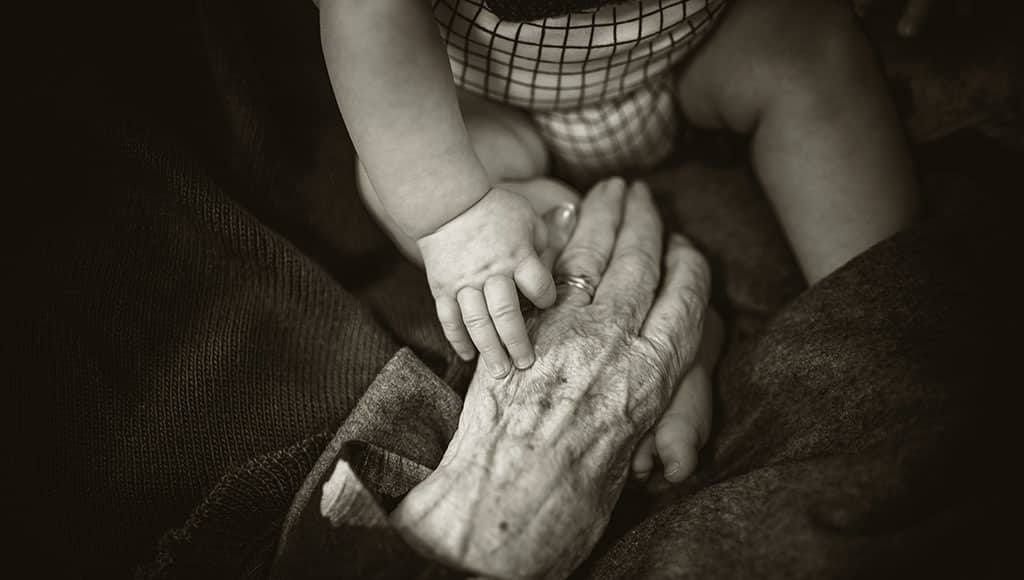When I held my little granddaughter for the first time, she simply took my breath away. There is no sight more beautiful in the entire world than that of one’s grandchild, and if that infant happens to be a granddaughter, the memory of one’s daughter, mother and own self somehow superimposes on the newborn’s visage, and the baby appears to become a sum total of all of us.
How this happens is difficult to explain, but a new study, “Investment by maternal grandmother buffers children against the impacts of adverse early life experiences”, authored by Samuli Helle, Antti O. Tanskanen, David A. Coall, Gretchen Perry, Martin Daly, and Mirkka Danielsbacka, which was published in Scientific Reports, highlights the unique and critical role that maternal grandmothers play in mitigating the effects of early life stressors on children’s mental health.
Prior research has suggested that maternal relatives, especially grandmothers, tend to invest more in their grandchildren, potentially due to greater certainty of genetic relatedness and stronger emotional bonds. However, the academics now sought to explore if these investments had a protective effect on children facing multiple adversities. Or not.
The study’s findings revealed that only involvement by maternal grandmothers significantly buffered the negative impact of adverse early life experiences on children’s emotional and behavioural problems. This meant that children who faced multiple adversities but had high levels of support from their maternal grandmothers exhibited fewer emotional and social problems compared to those with less support.
“Our analysis was able to show that grandchildren who experience early stress, be that from strained relationships between the parents, or drug or alcohol use within the family, it increased their risk of poor social and emotional adjustment,” said study author David Coall of Edith Cowan University, Australia.
“When more investment from a maternal grandmother was present, the impact of early stress on adolescent dysfunction became smaller and smaller, but it did not disappear entirely. There is no level of investment that would entirely negate this, but investments by maternal grandmothers more than halved the negative effects of adverse early life experiences on children’s emotional and behavioural problems,’’ he said.
Interestingly, the study found no significant buffering effect from paternal grandparents or maternal grandfathers. This reinforced the notion that maternal grandmothers were uniquely positioned to provide critical emotional and practical assistance to grandchildren, particularly in challenging circumstances.
Right! I love browsing through this kind of researches because they justify, in official scientific terminology, what we grandmoms intuitively know all along. But intuition is not something that can easily be understood, especially by maternal grandfathers, who turn green with envy when their utter uselessness is revealed to them. Where emotionally shielding of grandkids is concerned, that is.
Our granddaughter turns two today, and along with everything else, she has inherited my singing gene too. All my WhatsApp calls involve us crooning her favourite nursery rhymes together, but this morning, she had just woken-up from a nap, and was in no mood to sing.
After the third attempt to get her to join me on ‘row row row your boat’, I was about to give up.
“Gently down the shore…” I sang one last time.
She looked at me with her melting brown eyes.
“If you see a lion, don’t forget to?” I prompted.
“Roarrrr,” she lisped dissolving into giggles.
“You are my sunshine,” she started singing.
A surge of love and protectiveness overcame me.
“My only sunshine,” I chorused through tears of joy.
By Nickunj Malik
|| features@portugalresident.com
Nickunj Malik’s journalistic career began when she walked into the office of Khaleej Times newspaper in Dubai thirty-one years ago and got the job. Since then, her articles have appeared in various newspapers all over the world. She now resides in Portugal and is married to a banker who loves numbers more than words.




















